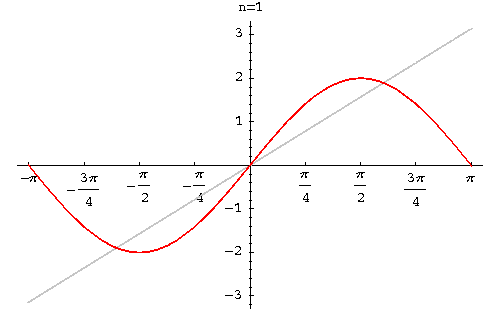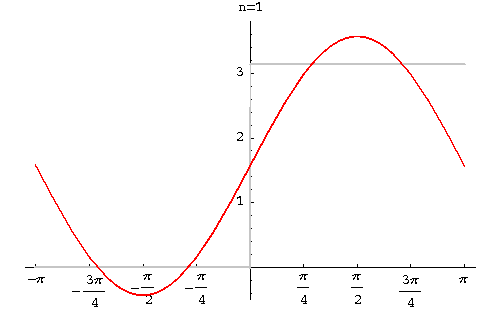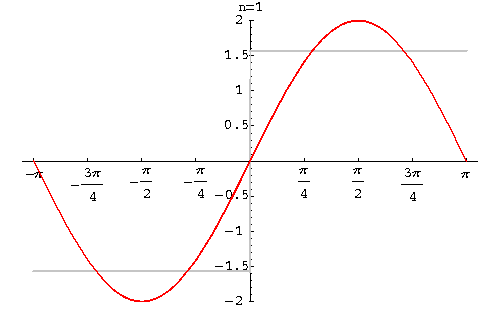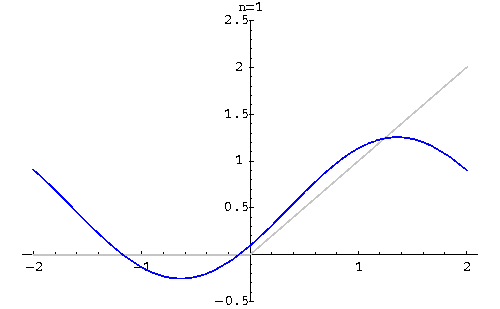درباره من
پیوندها
- انجمن زلزله ایران
- سازمان نقشه برداری کشور
- وزارت راه و شهرسازی
- مرکز تحقیقات ساختمان و مسکن
- پژوهشگاه زلزله
- معاونت برنامه ریزی و نظارت راهبردی رئیس جمهور
- آخرین زمین لرزه ها
- دانشگاه آزاد قزوین
- باشگاه پژوهشگران جوان و نخبگان
- American Concrete Institute: ACI
- American Society of Civil Engineers
- انجمن بتن ایران ICI
- انجمن سازه های فولادی ایران
- U.S. Geological Survey
- نظام مهندسی ساختمان استان قزوین
- کانون فارغ التحصیلان دانشگاه آزاد
- مرکز تحقیقات صنعت ساختمان و بتن دانشگاه آزاد قزوین
- قیمت روز مصالح ساختمانی
- سایت جامع اطلاع رسانی قیمت آهن آلات
- دفتر امور مقررات ملّی ساختمان
- سامانه عملیات الکترونیکی مالیاتی
- خبرگزاری مجلس شورای اسلامی
- سازمان هواشناسی
- نظام فنی و اجرایی کشور
- شرکت فنی و مهندسی برنا آوند سازه
- Maps of World
- شرکت تعاونی مسکن فاتحان فجر
- Center forEngineering Strong Motion Data
- Southern California Earthquake Data Center (SCECDC
- Northern California Earthquake Data Center
- مرکز لرزه نگاری ژاپن
- Kajima Builidng and Design Group
- NEHRP- New Building
- Geospatial Information Authority of Japan (GSI)
- Incorporated Research Institutions for Seismology
- Alamut sightseeing tour
برگهها
- Advanced engineering mathematical(ریاضی مهندسی )
- Reasearch Method
- What's the meaning of earthquak
- seismic design handbook .f. naim(کتاب کامل طراحی لرزه ای دکتر فرزاد نعیم)
- Civil Engineering Formulas Pocket Guide
- Dynamics of structures(دینامیک سازه چوپرا-کلاف)
- Principles of SOIL DYNAMICS(دینامیک خاک داس)
- Guideline for Seismic Hazard Analysis(نشریه 626)
- AN OVERVIEW OF SELECTED SEISMIC HAZARD ANALYSIS METHODOLOGIES(مقاله گرین-هال)
- Propagation of Love waves in an elastic layer with void pores
- Seismic Rehabilitation Guidelines(نشریه 360-364)
- (نشریه 038-041)Guiedline for Special structures analysis
- اصول مهندسی زلزله و باد
- آشنایی با زلزله و اثر آن بر سازه
- ETABS
- اصول مدیریت ساخت
جدیدترین یادداشتها
همه- [ بدون عنوان ]
- [ بدون عنوان ]
- [ بدون عنوان ]
- [ بدون عنوان ]
- [ بدون عنوان ]
- [ بدون عنوان ]
- [ بدون عنوان ]
- [ بدون عنوان ]
- [ بدون عنوان ]
- [ بدون عنوان ]
- [ بدون عنوان ]
- [ بدون عنوان ]
- [ بدون عنوان ]
- [ بدون عنوان ]
- [ بدون عنوان ]
- [ بدون عنوان ]
- [ بدون عنوان ]
- [ بدون عنوان ]
- [ بدون عنوان ]
- [ بدون عنوان ]
- [ بدون عنوان ]
- [ بدون عنوان ]
- [ بدون عنوان ]
- [ بدون عنوان ]
- [ بدون عنوان ]
- [ بدون عنوان ]
- قلاب های استاندارد برای میلگردهای طولی و عرضی
- [ بدون عنوان ]
- ارزیابی ملک توسط کارشناس رسمی
- طراحی و اجرای چاهک آسانسور
- مقایسه انواع دیوارهای سبک با یکدیگر
- الزامات فنی برای استفاده از بلوک های سقف پلی استایرن (یونولیت )در سیستم سقف تیرچه - بلوک
- قانون کارشناسان رسمی دادگستری مصوب ۱۳۸۲/۰۲/۱۵
- انواع تخلفات انتظامی کارشناسان رسمی دادگستری
- سامانه پردازش خودکار طیف طراحی سازه ویژه ساختگاه
- متابع مهم دانلود مقالات ، کتاب و پایان نامه ها
- تغییرات ویرایش 99 نسبت به ویرایش 92 مبحث نهم مقررات ملی ساختمان
- دستورالعمل ساخت و ساز در پهنه های گسلی
- محاسبه ضریب تشدید برش دیوارهای سازهای
- جزییات اجرای وال پست ( دفتر ترویج مقررات ملی ساختمان)
- نکات مهم در خرید مسکن
- آموزش کار با GPS
- آموزش جامع نرم افزار Google Earth
- جدول دستورات اتوکد AutoCad
- جوش و انواع آن به همراه کتابچه محاسبات انواع جوش با مثال
- طراحی دال های مشبک ( مجوف) با استفاده از نرم افزارهای ETABS و SAFE
- کتاب " طراحی شمع برای مهندسین سازه و ژئوتکنیک"
- برنامه محاسبه مرکز جرم و مرکز سختی
- انواع تست غیر مخرب و مخرب جوش
- فایل اکسل منحنی های اندرکنش طبق ACI
بایگانی
- فروردین 1404 1
- بهمن 1403 1
- دی 1403 1
- آذر 1403 1
- آبان 1403 1
- مهر 1403 1
- شهریور 1403 1
- مرداد 1403 1
- خرداد 1403 1
- اردیبهشت 1403 1
- فروردین 1403 1
- اسفند 1402 1
- بهمن 1402 1
- دی 1402 1
- آذر 1402 1
- آبان 1402 1
- مهر 1402 1
- شهریور 1402 1
- مرداد 1402 1
- تیر 1402 1
- خرداد 1402 1
- اردیبهشت 1402 1
- فروردین 1402 1
- اسفند 1401 1
- بهمن 1401 1
- دی 1401 1
- آذر 1401 1
- آبان 1401 1
- مهر 1401 1
- شهریور 1401 1
- مرداد 1401 1
- تیر 1401 1
- خرداد 1401 1
- اردیبهشت 1401 1
- فروردین 1401 1
- اسفند 1400 1
- بهمن 1400 1
- دی 1400 1
- آذر 1400 1
- آبان 1400 1
- مهر 1400 1
- شهریور 1400 1
- مرداد 1400 1
- تیر 1400 1
- خرداد 1400 1
- اردیبهشت 1400 1
- فروردین 1400 1
- اسفند 1399 1
- بهمن 1399 1
- دی 1399 1
- آذر 1399 1
- آبان 1399 1
- مهر 1399 1
- شهریور 1399 1
- مرداد 1399 1
- تیر 1399 1
- خرداد 1399 1
- اردیبهشت 1399 1
- فروردین 1399 1
- اسفند 1398 1
- بهمن 1398 1
- دی 1398 1
- آذر 1398 1
- آبان 1398 1
- مهر 1398 1
- شهریور 1398 1
- مرداد 1398 1
- تیر 1398 1
- خرداد 1398 1
- اردیبهشت 1398 1
- فروردین 1398 1
- اسفند 1397 1
- بهمن 1397 1
- دی 1397 1
- آذر 1397 1
- آبان 1397 1
- مهر 1397 1
- شهریور 1397 1
- مرداد 1397 1
- تیر 1397 1
- خرداد 1397 1
- اردیبهشت 1397 1
- فروردین 1397 1
- اسفند 1396 1
- بهمن 1396 1
- دی 1396 1
- آذر 1396 1
- آبان 1396 1
- مهر 1396 1
- شهریور 1396 1
- مرداد 1396 1
- تیر 1396 1
- خرداد 1396 2
- اردیبهشت 1396 1
- فروردین 1396 1
- اسفند 1395 1
- بهمن 1395 1
- دی 1395 1
- آذر 1395 1
- آبان 1395 1
- مهر 1395 1
- شهریور 1395 1
- مرداد 1395 1
- تیر 1395 1
- خرداد 1395 1
- اردیبهشت 1395 1
- فروردین 1395 1
- اسفند 1394 2
- بهمن 1394 2
- آذر 1394 4
- آبان 1394 3
- مهر 1394 1
- مرداد 1394 1
- تیر 1394 1
- خرداد 1394 2
- اردیبهشت 1394 5
- فروردین 1394 1
- اسفند 1393 1
- بهمن 1393 3
- شهریور 1393 1
- خرداد 1393 3
- اردیبهشت 1393 2
- فروردین 1393 4
- اسفند 1392 3
- دی 1392 1
- آذر 1392 26
- آبان 1392 1
تقویم
فروردین 1404| ش | ی | د | س | چ | پ | ج |
| 1 | ||||||
| 2 | 3 | 4 | 5 | 6 | 7 | 8 |
| 9 | 10 | 11 | 12 | 13 | 14 | 15 |
| 16 | 17 | 18 | 19 | 20 | 21 | 22 |
| 23 | 24 | 25 | 26 | 27 | 28 | 29 |
| 30 | 31 |
جستجو
Fourier Series Learning

Since this expression deals with convergence, we start by defining a similar expression when the sum is finite.
Definition. A Fourier polynomial is an expression of the form

The Fourier polynomials are ![]() -periodic functions. Using the trigonometric identities
-periodic functions. Using the trigonometric identities
![\begin{displaymath}\begin{array}{lcr}
\sin(mx)\cos(nx) &=&\displaystyle \frac{1}...
...e \frac{1}{2}\Big[\cos((m-n)x) - \cos((m+n)x) \Big]
\end{array}\end{displaymath}](http://www.sosmath.com/fourier/fourier1/img6.gif)
- (1)
- for
 ,
we have
,
we have
 for n>0 we have
for n>0 we have
- (2)
- for m and n, we have

- (3)
- for
 ,
we have
,
we have

- (4)
- for
 ,
we have
,
we have

Using the above formulas, we can easily deduce the following result:
Theorem. Let


This theorem helps associate a Fourier series to any ![]() -periodic function.
-periodic function.
Definition. Let f(x) be a ![]() -periodic function which is integrable on
-periodic function which is integrable on
![]() .
Set
.
Set


Example. Find the Fourier series of the function
![\begin{displaymath}b_n = \frac{1}{\pi} \int_{-\pi}^{\pi} x \sin(nx)dx =
\frac{1...
...\frac{x\cos(nx)}{n} + \frac{\sin(nx)}{n^2}\right]^{\pi}_{-\pi}.\end{displaymath}](http://www.sosmath.com/fourier/fourier1/img22.gif)

 |
Example. Find the Fourier series of the function



|
Example. Find the Fourier series of the function function



|
Remark. We defined the Fourier series for functions which are ![]() -periodic, one would wonder how to define a similar notion for functions which are L-periodic.
-periodic, one would wonder how to define a similar notion for functions which are L-periodic.
Assume that f(x) is defined and integrable on the interval [-L,L]. Set

 ,
we obtain the following definition:
,
we obtain the following definition:
Definition. Let f(x) be a function defined and integrable on [-L,L]. The Fourier series of f(x) is


Example. Find the Fourier series of


![\begin{displaymath}f(x) \sim \frac{1}{2} +
\sum_{n=1}^{\infty} \left[\frac{2}{n...
...rac{2}{n\pi}(-1)^{n+1}\sin\left(n\frac{\pi x}{2}\right)\right].\end{displaymath}](http://www.sosmath.com/fourier/fourier1/img41.gif)

|




























